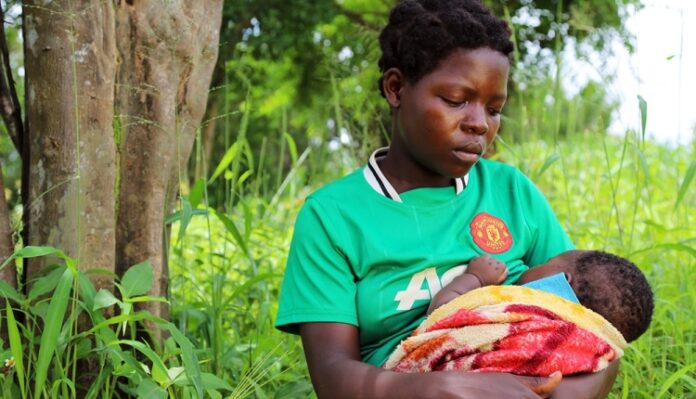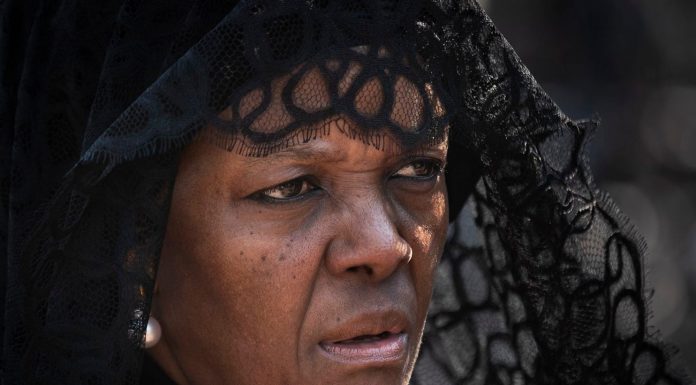
Nhau Mangirazi
Traditional leaders, healers and practitioners have condemned child marriages and marrying off of young girls accusing some parents of taking advantage of their children in the harmful cultural practices.
They also described the practice as “outdated and exploitative” adding that it keeps young girls under bondage and without freedom of choice.
The practice, they added, was no longer applicable in the modern age.
In an interview, Zimbabwe National Traditional Healers Association president George Kandiero said some of the harmful practices, include paying off a girl child to avenging spirits and replacing a deceased sister with a minor infringed the girl child’s rights.
“I don’t believe it is good for the girl child. Some of these men are taking advantage of culture and marrying these young girls.
“They bring in all harmful practices that fuel early child marriages in the pretext of kuripa ngozi, that is, appeasing avenging spirits.
“In this modern age, it is unacceptable as paying off avenging spirits can be settled through cash payments or through cattle which remains our source of settling debts culturally.”
Kandiero said there were various alternatives that can be used to appease the avenging spirits adding that the practices were also criminal in nature.
His sentiments came after the death of 14-year-old Anna Machaya after child birth at an apostolic sect shrine in Marange, Manicaland.
The teenager had been married off to a 26-year-old Hatirarame Momberume who has since been arrested and is in custody facing murder charges.
Kandiero said there was need to rein in those practicing the out-dated rituals.
“Traditionally and culturally it is allowed to ask for a reprieve on any judgment after pleading including kukumbiririra where the accused will be allowed a time frame to pay off with cattle or money and that practice is accepted.
“Culture is dynamic and as custodians of culture, we are against those who abuse minors and those who violate young children must face the full wrath of the law as no one is above the law,” he said.
Chief Chundu, Abel Mbasera, from Hurungwe in Mashonaland West said traditional leaders were working hard to educate communities on the challenges of child marriages.
“As traditional leaders, we are advocating against child marriages. We are appealing to communities to respect the girl children and stop marrying off child brides.
“In Shona we say regai dzive shiri mazai haana muto meaning let the men wait for girls to be mature. We are glad that we have laws that say the legal age of majority as pegged at 18 years and this gives a leeway to the girl child not to be married off at a tender age,” Chief Chundu said.
An official with the Zimbabwe National Traditional Practitioners Association, Petronella Chiusari, said child marriages in Zimbabwe were being fueled by both cultural and religious practices that turn to be harmful to minors.
“These practices have been done since time immoral because girls were not in a position to negotiate for their freedoms. As an organization that values girls so that they are respected, we strongly condemn such practices” she said. europharma viagra
According to the International Journal of Management and Social Sciences study carried in 2017, child marriages or early marriages especially in the Mashonaland provinces of Zimbabwe are caused by religious and cultural beliefs, parental expectations together with their low education.
The study noted that low academic performance and absenteeism from school caused by negative attitude towards sex education also contributes to early marriage among secondary school girls.
“While the marriage laws have been aligned (to the Constitution), the study revealed that parents are still ignorant about many issues regarding child marriages hence the need for countrywide campaigns on the effect of this practice both on individuals and community as a whole,” the study said.
Despite campaigns done in Zimbabwe through different platforms such as Girl Child Network, Gender Policies, Child Line, UNICEF and government, child marriage is still on the increase in Zimbabwe.
According to latest statistics, Mashonaland Central province tops with (50 percent), Mashonaland West (42 percent), Mashonaland East (36 percent) and the Midlands (31 percent),
In Manicaland, the prevalence rate stood at 30 percent with Matabeleland North at 27 percent while Harare, Matabeleland South and Bulawayo are at 19 percent, 18 percent and 10 percent, respectively.








